#Safety
Listen Up: Amazon Putting Alexa Into More Automobiles
Amazon is striving to put Alexa, the home assistant/listening device, into more automobiles in the coming years. As a result, the company is working feverishly to enhance her vehicular-related capabilities — including wriggling her way into the embedded software systems of new cars.
On the surface, it sounds great. Networking your car with your smart home device opens up a bevy of new conveniences and Alexa should also help your car get better at understanding everyday voice commands. In the future, you’ll be able to order groceries, check the stock market, call the office, and adjust the thermostat of your house and car without ever having to take your hands off the steering wheel. But this also opens up a bevy of concerns, now that we know Amazon’s employees listen to and record pretty much everything you say to the device — sometimes doing the same for background conversations that were never intended for Alexa’s ears.
Paint It Black: 2020 Lincoln Navigator Has New Monochromatic Colors, Safety Tech
Until the refresh of the Cadillac Escalade arrives, you want the Lincoln Navigator if you need a premium American battle tank. It’s a Raptor-powered beast of a cruiser, and Lincoln is keeping it fresh for the 2020 model year by offering a new appearance package and more standard tech.
Starting with the visuals, there is now a Monochromatic Appearance Package for the Navigator. If you don’t like chrome, and this author doesn’t, then this is a box you’ll want to check. Yes, there’s still some chrome, it is a Navigator after all. But the Monochromatic Package on the Reserve series offers three different colors to “showcase the bold lines” of the Navigator.
Hackers Do the Dirty to Another Tesla Model 3
It’s Elon Musk’s birthday today, so we’ve decided to wish him well and say congratulations on Tesla Motors convincing the U.S. Commerce Department to waive the 10 percent tariff on imported aluminum so it can build more battery cells at the company’s Nevada Gigafactory. However, what would birthday well-wishing be without the all-important pinch to grow an inch?
Another Model 3 has been hacked, this time without the manufacturer’s blessing. We’re equating it to a mild goosing. Regulus Cyber, a company specializing in digital security, decided to give the Tesla (and a Model S) a shakedown by seeing if they could fool the car’s navigational equipment and upset/confuse Autopilot to the point of failure.
Let’s see how they did.
Survey Suggests Most Motorists Dig Advanced Driving Aids
A survey released by Consumer Reports this week indicated that a majority of motorists (57 percent) believed that the advanced driving aids their vehicles had actively helped them avoid a crash. The survey, which incorporated data on roughly 72,000 vehicles from the 2015-19 model years, asked drivers to weigh in on a multitude of safety systems — including forward collision warning, automatic emergency braking, blind spot alerts, and more. While not all of these features had majority support, tabulating them as a whole showed at least half of the people using advanced driver assistance systems (ADAS) saw some value in them.
Our opinions on these systems have been thoroughly mixed. While we’ve found most advanced driving aids to be inconsistent in their operation, sometimes befuddled by fog or a vehicle encrusted with roadway grime, we’ll happily admit that adaptive cruise control offers more utility than the standard on/off inclusions of yesteryear. But we’ve also seen disheartening reports that semi-autonomous features dull a good driver’s senses to a point that effectively makes them a worse motorist and would be lying if we said we trusted any of these systems implicitly.
BEV Fires Encourage China to Get Serious About Battery Safety, Vehicle Monitoring
China is currently the largest proponent of electric vehicles on the entire planet. The nation has even incorporated BEVs as a significant part of its complex strategy to overtake the United States the dominant global superpower. However a sudden influx of battery related fires has caused it some trepidation, even though there hasn’t been much evidence to suggest they are actually more prone to catching fire than gas-powered vehicles.
Regardless, the People’s Republic is now demanding that manufacturers conduct routine inspections on electric cars. China’s Ministry of Industry and Information Technology says all companies must conduct checks on BEVs, focusing on battery waterproofing, battery boxes, charging points, high-voltage wiring harnesses, and even the wear of mechanical components. They will also be required to report on repairs and any incidents that might indicate a problem. According to the ministry’s press release, they have until October to submit their findings.
NHTSA Estimates Minor Improvement in Roadway Fatalities for 2018
The National Highway Traffic Safety Administration has released its preliminary report on how many people died on U.S. roadways in 2018, indicating that overall traffic deaths had likely fallen by 1 percent. While the information doesn’t exactly justify a party, it’s good news after the last few years attempted to provide new footage for the Red Asphalt series.
As the first major spike in traffic deaths since the “Swinging Sixties,” 2015 freaked everyone out a bit. Save for a few annual hiccups, American traffic deaths (contrasted with its population) had been on the decline for decades. However, by the end of 2016, things looked certain — it was becoming less safe to drive in the United States.
Additional Safety Features Coming to Toyota Vehicles for 2020
Fans of excessive idling will want to consider a 2019 Toyota model rather than a 2020. The automaker has announced two new safety features destined for most of its lineup for the 2020 model year, one of them being a system that shuts off the engine if left running for too long. How long? That’s for Toyota to decide.
The second feature is one employed by automakers with unconventional transmission shifters that really want to keep litigation at bay.
Rear Suspension Failures Continue to Plague Ford, Prompting a Dual Recall
This isn’t the first recall for Ford vehicles with rear ends that may step out of line, but it’s certainly the largest. On Wednesday, the automaker announced the recall of 1.2 million Ford Explorers in the U.S. out of fear that rear suspension toe links could fracture, leading to a loss of control.
The recalls covers 2011-2017 Explorer models, with Ford saying the issue has already caused one driver to veer into a curb. Over the past three years, several suspension recalls have dogged this generation of Explorer; the cause of the potential fractures ranged from improper welds to the accumulation of a certain type of mud.
Speaking of that mud, it’s more of a menace than originally thought. In a separate recall, Ford today called for the return of four Ford and Lincoln models sold in Canada to replace vulnerable rear toe links.
Hydrogen Fuel Station Blast Temporarily Halts Fuel Cell Vehicle Sales in Norway
Toyota and Hyundai have reportedly suspended sales of the hydrogen fuel cell-powered Mirai and Nexo in Norway after one refueling station went up like the Hindenburg.
Local media reports that, on Monday evening, a Uno-X station in Sandvika suffered a “huge explosion” that injured two nearby drivers after the shock wave caused their vehicles’ airbags to deploy. It’s a black eye for a fuel that, despite the best efforts of a handful of determined automakers, can’t seem to make much headway in the marketplace.
Audi's First Electric Vehicle Recalled Over Fire Risk
It’s not good PR for a brand hoping to snap up wary would-be converts, but it does suggest that Audi’s quality management apparatus is at least partly up to snuff.
On Monday the German automaker announced a voluntary recall of 540 E-Tron SUVs sold in the United States out of fear that a glitch could spark a large and hard-to-control fire. The E-Tron, a fully electric midsize SUV with a (happily) conventional appearance, saw its first full month of U.S. sales in May, moving 856 units.
GM's First Self-driving Car May Keep Manual Controls
This time last year, we were under the impression that General Motors’ first attempt at an autonomous vehicle would come without pedals, a steering wheel, or any other controls traditionally associated with driving. Cruise Automation, the GM subsidiary tasked with developing the vehicle, seemed confident it could deliver something that didn’t need to rely on human intervention to be truly safe. This promise was reiterated by GM in January of 2018 via a request to produce the car sans controls though federal exemption.
U.S. laws governing what constitutes a safe automobile were written before autonomous vehicles entered development, creating problems. It wasn’t evident to anyone that GM could legally manufacture a vehicle that lacked traditional controls, as existing laws stipulated that all automobiles had to have them. While the Department of Transportation has proven rather lenient on policing AVs in terms of testing, rewriting the Federal Motor Vehicle Safety Standards or providing exemptions was a bridge too far — especially when self-driving tech is new, frequently misunderstood, and backed heavily by corporate interests. The existing guidelines remain unchanged and new legislation pertaining to self-driving vehicles has stalled in Congress.
Apparently sick of waiting, General Motors now appears satisfied to just build AVs with manual controls.
Ram 1500 Airbag/Seat Belt Glitch Comes Hot on the Heels of the Old Ram's Driveshaft Drop Recall
It’s a bad week for owners of current- and older-gen Ram pickups, assuming they’re safety conscious and have busy summer schedules. Fiat Chrysler Automobiles launched two recalls this week targeting its full-size trucks; the latest being a voluntary callback of nearly 343,000 2019 and 2020 Ram 1500s over a software glitch that could disable airbags and seat belt pretensioners.
Then there’s the voluntary recall of old-gen Ram 1500s from the 2018 and 2019 model years (Ram “Classic” for 2019) that could drop their driveshaft while driving.
Inside Out: ZF Tests External Side Airbag System
There was a time when the only thing cushioning your head from a direct impact with the steering wheel in the event of a crash was the skin it was wrapped in. Since then, airbags have proliferated, breeding inside millions of cars to a point where they now explode down from the headliner.
Considering automotive safety pretty much only moves in one direction, this was bound to happen. There may come a day when airbags are no longer limited to the interior of cars.
ZF Group, best known for its transmissions, is currently testing a “pre-crash external side airbag system” that it considers to be the world’s first. Having debuted a prototype in 2016, ZF is now conducting live demonstrations where an inflatable barrier bursts forth from the rocker panel to provide additional cushioning for side impacts.
GM, Michelin Team Up for Airless Tires
General Motors and tiremaker Michelin no doubt hope a joint research agreement announced Tuesday bears riper fruit than Goodyear’s early-60s attempt to offer illuminated Neothane tires.
The two companies plan to develop and test an airless, puncture-resistant tire, aka the Unique Puncture-proof Tire System (Uptis), with the intent to introduce the product on GM vehicles by 2024. Is the era of the steel-belted radial drawing to a close?
Did GM's Seat Belt Recall Fix the Problem? Feds Intend to Find Out
A half-decade after General Motors recalled 1,339,355 full-size crossovers due to a risk of seat belt failure, the National Highway Traffic Safety Administration has launched an investigation into the models.
Following reports sent in from owners, the federal agency is concerned that the 2014 recall did not fix the problem of detached front seat belt cables in 2009-2014 vehicles.



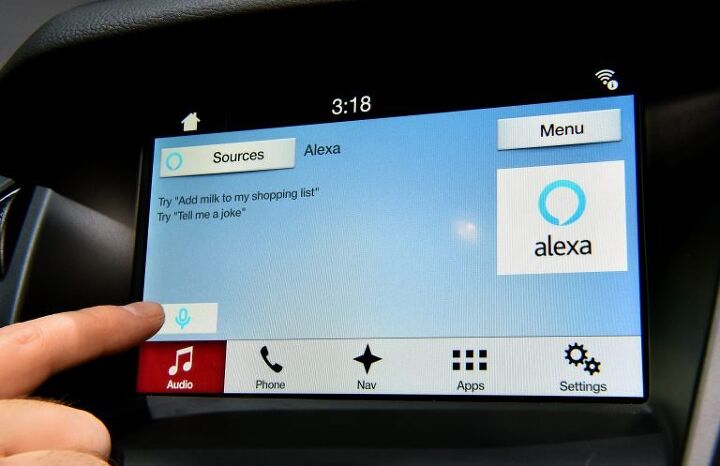
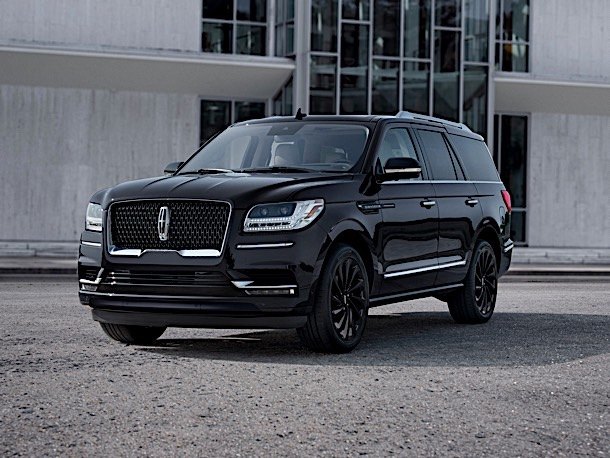






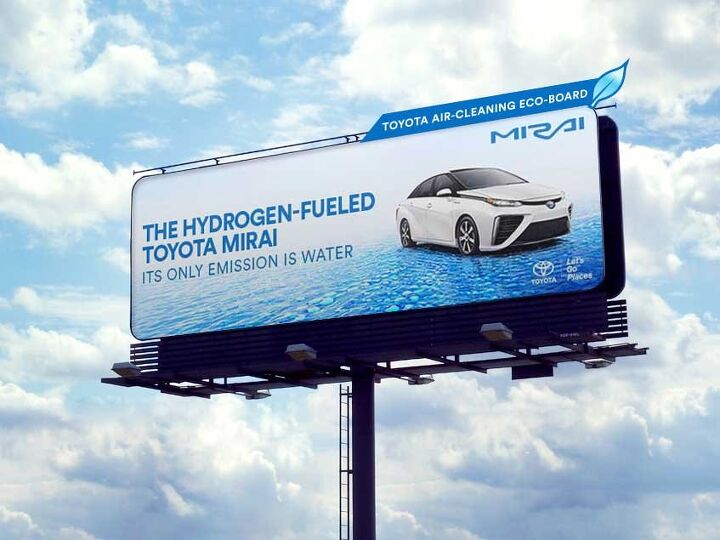
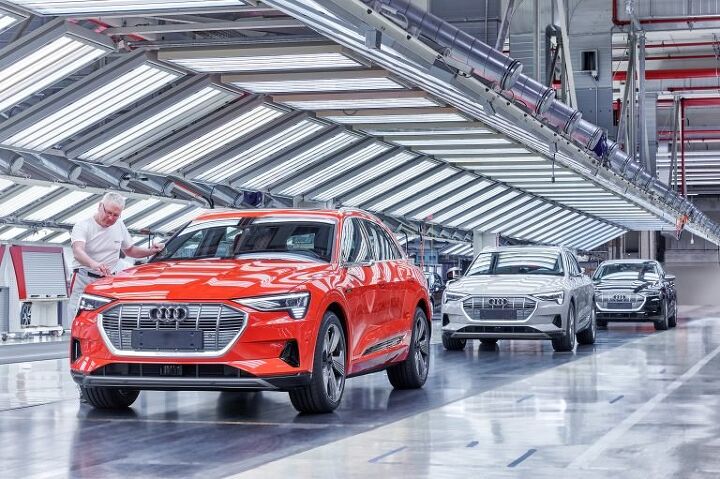

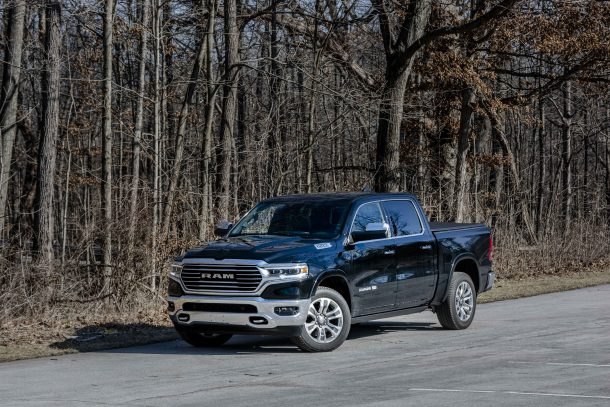
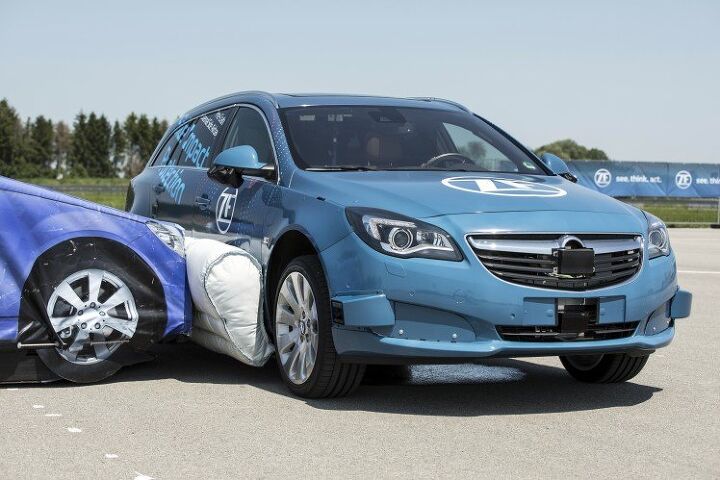

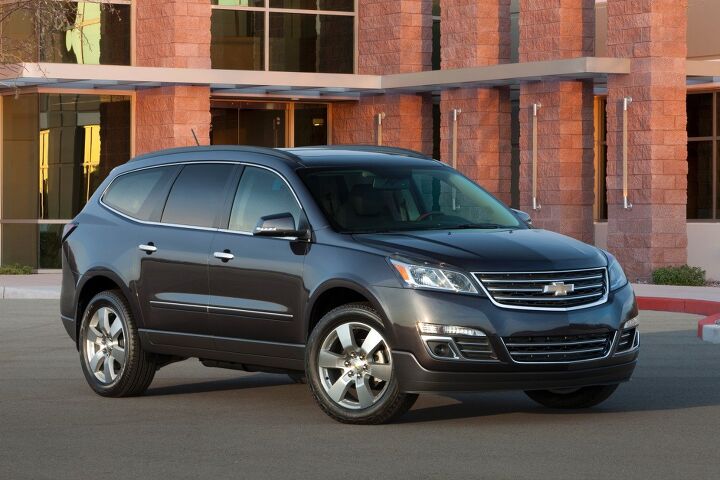












Recent Comments